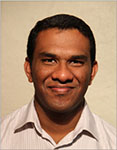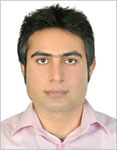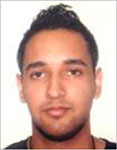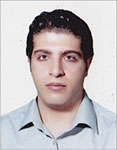Effect of liquid invasion damage and supercharging on wireline formation tester measurements in tight gas reservoirs
Joshua Andrews A , Hassan Bahrami A , Reza Rezaee A , Hamid Reza A , Sultan Mehmood A and Hossein Salemi ACurtin University
The APPEA Journal 52(1) 627-632 https://doi.org/10.1071/AJ11051
Published: 2012
Abstract
Wireline formation testing and measurement of true formation pressure can provide essential knowledge about the reservoir dynamic characteristics. In tight formations, a reliable determination of pressure and mobility gradients is challenging because of the tight nature of formation rock. Due to the very low reservoir permeability, the mud cake across wellbore is often ineffective in preventing filtrate invasion, thus causing the measured pressure to be higher than actual formation pressure as a result of supercharging effect.
Wireline formation testing measurements are also influenced by the effects of filtrate invasion and capillary pressure, as the measured pressure is pressure of drilling fluid filtrate, the continuous phase present in the invaded region around wellbore. As a result, the measured pressure might be different to true formation pressure. This effect is more noticeable in tight gas reservoirs due to capillary pressure effect.
This paper looks into estimation of true formation pressure and evaluates the effect of filtrate invasion damage and supercharging on wireline formation tester measurements in tight gas reservoirs. Numerical simulation approach is used to build the reservoir model based on data acquired from a tight gas reservoir. The model undergoes water injection followed by gas production from different testing points along the wellbore, and the corresponding pressure gradients are plotted to check for pressure matching with that of the formation fluid in the virgin region. The results indicate the significant effects of supercharging, reservoir characteristics, capillary pressure and liquid invasion damage on wireline formation pressure measurements in tight gas reservoirs.

Joshua Thomas Andrews is a petroleum engineering graduate of Curtin University Perth, Western Australia. Prior to joining Curtin University, he had worked for TechSharp Engineers Pvt. Ltd., India as a piping and quality control engineer (2009). Joshua also holds a Bachelor degree in mechanical engineering from Mahatma Gandhi University, India. joshua.thomas87@gmail.com |

Hassan Bahrami is a PhD candidate in the Department of Petroleum Engineering at Curtin University, and is now focused on tight sand gas reservoirs’ damage and productivity. Prior to Curtin University, he worked for Schlumberger Data and Consulting Services (DCS) as a borehole reservoir engineer (2003–09), and at Tehran Energy Consultants as a reservoir engineer (2001–03). Hassan holds a BSc in chemical engineering from Persian Gulf University, and an MSc in reservoir engineering from Sharif University of Technology, Tehran, Iran. hassan.bahrami@postgrad.curtin.edu.au |

Reza Rezaee is an associate professor at Curtin University’s Department of Petroleum Engineering, and has a PhD in reservoir characterisation. He has more than 20 years’ experience in academia and industry. During his career he has been engaged in several research projects supported by national and international oil companies. With his supervisory work at various universities, these commissions have involved a wide range of achievements. He has supervised more than 50 MSc and PhD students during his university career to date. His research has been focused on integrated solutions for reservoir characterisation, formation evaluation, and petrophysics. He has used expert systems such as artificial neural networks and fuzzy logic, and has introduced several new approaches to estimate rock properties from log data where conventional methods have failed to succeed. He is now focused on unconventional gas, including gas shale and tight gas sand studies, and is the lead scientist for the WA:ERA (EIS) Tight Gas and Shale Gas research projects. r.rezaee@curtin.edu.au |

Hamid Reza Pourabed is a petroleum engineer. He holds Bachelor degree in petroleum engineering from Petroleum University of Technology, and Masters degree in reservoir engineering from Tehran University, Iran. hpourabed@gmail.com |

Sultan Mehmood completed his Master of petroleum engineering (Hons) at Curtin University of Technology in Perth, Western Australia in 2011. He holds a BS in mechanical engineering from Ghulam Ishaq Khan Institute of Engineering Sciences and Technology, Pakistan. sultan_mehmood@live.com |

Hossein Salemi is a petroleum engineering candidate from Curtin University Perth, Western Australia. Prior to attending Curtin, he had worked for Sepahan Oil Company in Iran as a process controller (2005-2006). Hossein also holds a Bachelor degree in chemical engineering from Azad University in Tehran, Iran. majid_154@yahoo.com |


